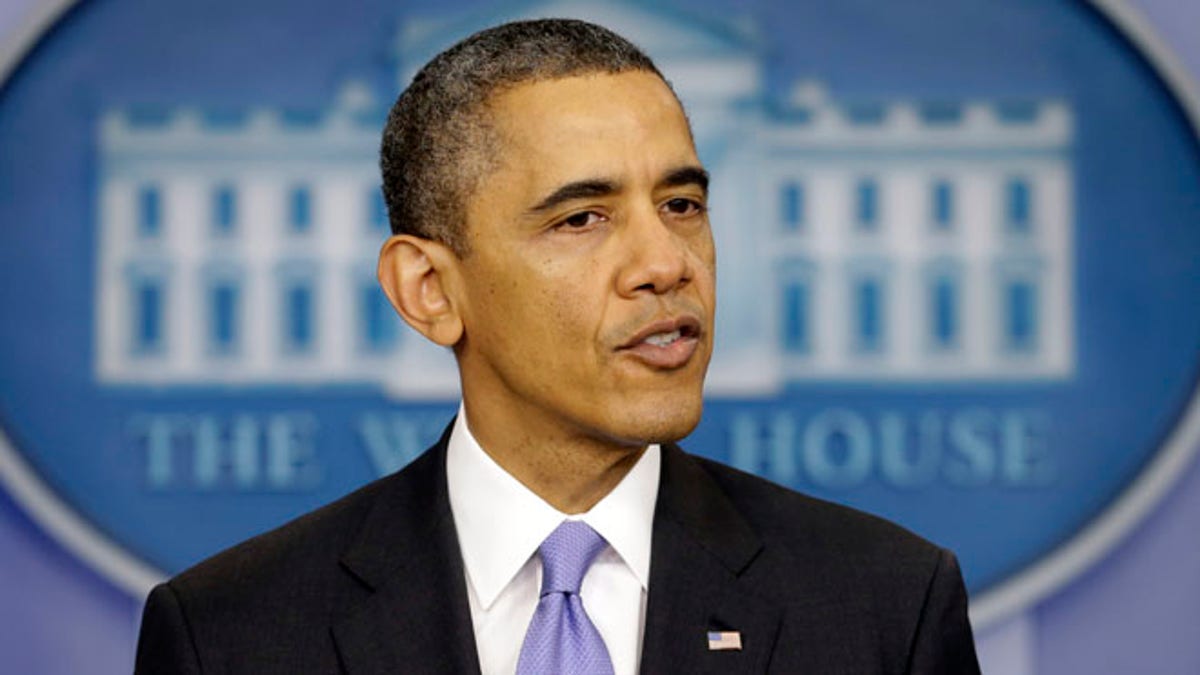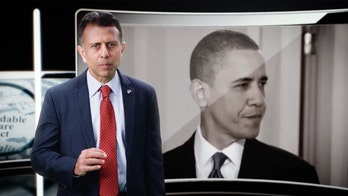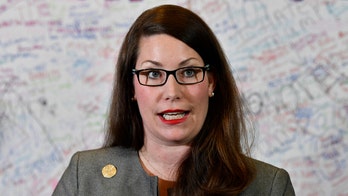
Dec. 20, 2013: President Obama speaks during an end-of-year news conference at the White House. (AP)
Everyone who works for someone does so knowing that at any time, they might be handed the pink slip. Don't do your best at the job you have, and it's sure to come sooner than later.
In Washington, things work ... differently.
A look at presidential administrations over the last few decades shows that very few high-level officials ever hear the word "fired" -- as a top aide to New Jersey Gov. Chris Christie did last week when her role in shutting down busy bridge lanes was exposed.
And as the scandals pile up in the Obama Executive Branch, the response is casting a spotlight on the capital's unique brand of accountability: For those who've done wrong, or were in charge when wrong was done, a graceful exit is almost always an option. Or, drawn-out internal reviews take the place of prompt firings.
Frustration with this practice boiled over Thursday. After a bipartisan Senate report found the State Department failed to address "ample" security warnings before the Benghazi terror attack, Sens. John McCain, R-Ariz., and Lindsey Graham, R-S.C., took to the Senate floor to hammer the administration.
"No one to this day has been held responsible for the tragic deaths of four brave Americans," McCain bellowed. "They hold bureaucracies responsible -- individuals are the ones that run bureaucracies."
But will this ever change?
For the most part, only lower-level rogues are actually fired. A Homeland Security official, for instance, who ran a website advocating race war was recently ousted, after being on paid administration leave for four months. A number of mid-level officials at the General Services Administration were also fired following revelations about a lavish, taxpayer-funded conference in Las Vegas. But even the poster boy of that scandal -- Jeff Neely, whose hot-tub picture neatly illustrated the excursion in the media -- reportedly was allowed to retire. The head of GSA also resigned.
This habit is by no means confined to the Obama administration. Offering embattled officials the option of resigning dates back decades. President Clinton's agriculture secretary, Mike Espy, resigned under White House pressure in 1994 amid a probe over improperly accepting gifts. (He was later acquitted). In the George W. Bush administration, Housing Secretary Alphonso Jackson resigned in 2008 amid several controversies. Attorney General Alberto Gonzales, Defense Secretary Donald Rumsfeld and Cheney Chief of Staff Scooter Libby also resigned, though the circumstances were more complicated and politically charged.
President Obama has continued this tradition. The most recent and high-profile example involves the controversy over IRS officials singling out conservative groups for added scrutiny when applying for tax-exempt status.
After the scandal broke, Acting IRS Commissioner Steven Miller resigned. But he was, according to a source, planning to leave the post anyway.
Other lower-level officials subsequently faced discipline or left the administration, though the circumstances were unclear. And Republicans are now questioning the objectivity of an FBI probe into the matter after it was reported that the person leading it is an Obama donor and that criminal charges are not expected.
Reps. Darrell Issa, R-Calif., and Jim Jordan, R-Ohio, accused the Justice Department of "apathy with regard to IRS misconduct" in a letter this week.
Other scandals and controversies have ended similarly.
After the botched rollout of HealthCare.gov, the administration resisted calls for resignations and instead said it was focused first on repairing the website. Since then, two officials have left the administration, though it's unclear whether they were in any way forced.
After the Benghazi terror attack, four State Department employees were placed on leave following the release of the Accountability Review Board report. But last August, it emerged that the officials were allowed to return to work, though in different positions.
Obama did react decisively when misconduct emerged among members of the top military brass.
He famously accepted the resignation of Gen. Stanley McChrystal in 2010 after a Rolling Stone article was published in which he and his aides brashly criticized the administration.
Gen. David Petraeus, too, resigned just after last year's presidential election after an FBI probe turned up evidence of his extramarital affair.
Yet, per Washington protocol, they were allowed to resign. McChrystal kept his full pension, and swiftly joined the speaking circuit. He is now represented by the Leading Authorities speakers bureau. Politico reported his going rate was $60,000 a speech.




